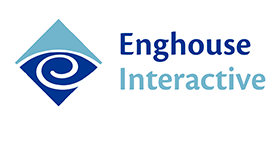A multigenerational contact centre workforce covers a wide range of age groups, all of whom have their own experiences, backgrounds, and expectations.
To get the best out of their diverse skills you need to understand what makes each generation tick and provide a working environment and management style that meets their needs.
The Four Main Generations in Today’s Contact Centre
While the exact proportions vary between individual contact centres, most will have a mix of these four generations:
Baby Boomers (born 1945-1965; c21% of the UK population): the post-war generation.
They are hierarchical and focused on stability and rules. In terms of communication channels they were brought up on the telephone and letters, so are skilled in formal, written communication.
The increase in remote working has helped to extend their working lives, with many staying on past retirement age.
Generation X (born 1965-1981; c21% of the UK population): the latch-key generation.
They grew up generally looking after themselves, with both baby boomer parents at work. They are therefore independent, self-motivated, and less formal. They don’t want to be micro-managed and are focused on achieving work/life balance.
While not digital natives they have picked up technology during their lives, and are able to swap between new digital channels, and the telephone and email.
Generation Y (born 1981-1996; c25% of the UK population): the millennial generation.
They grew up being told they could achieve whatever they aimed at, so are ambitious, and self-confident. They question everything and have high expectations of their employer, wanting to work for companies that share their values.
In terms of channels, they are digital-first and informal, generally avoiding the telephone in favour of email, messaging, chat, and social media.
Generation Z (born 1996-2012; c19% of the UK population): Zoomers, the newest generation in the workplace.
While young, they have already seen a lot of disruption, with financial recessions and the COVID pandemic striking at key points in their lives.
This has led to an increased focus on their mental wellbeing, both inside and outside the workplace. They share Gen Y’s sense of purpose and commitment to diversity but have a greater motivation by money – perhaps because many lost their jobs in previous downturns.
They are true digital natives, born with a smartphone in their hands and are naturally adept at using channels such as chat, messaging and social media.
Why is it Important to Have a Multigenerational Contact Centre?
Essentially the workforce is a mirror of wider society. So, your customers as well as your employees are likely to span the generations.
Therefore, to deliver the service and experience that every customer expects, you need the full range of perspectives and working styles that a multigenerational workforce brings.
Using the skills of different generations allows you to deliver omnichannel service. For example, baby boomers and Gen X are comfortable on the phone, while Gen Y and Z naturally gravitate to digital channels.
Bringing together a complete set of skills and experiences is at the heart of meeting the needs of all of your customers.
Managing the Multigenerational Workforce
As we’ve seen different generations want different things from their jobs, and what might engage one group could be irrelevant to another.
So, how do you tap into all of their skills and lead your team successfully? It comes down to focusing on five key areas:
1. Encourage Cross-Generational Collaboration
In a multigenerational contact centre each age group has its own unique experience and knowledge. Bringing these together provides a rounded perspective and generates new ways of solving problems.
For example, combining the tech knowledge of Gen Z with the real-world experience of Gen X can deliver innovative approaches to improving the customer experience.
To get the best from your team encourage cross-generational mentoring and training. Don’t just get older staff to share their experiences, but let younger employees teach them about new trends and technologies too.
2. Change Your Management and Communication Style
Baby boomers like hierarchical working structures, yet Gen X want independence. Therefore, adapt your management style to each individual and generation so that you don’t alienate people.
The same goes for communication. A Gen Z agent might well send back a short, emoji-heavy WhatsApp message to a long voicemail left by a Gen X manager.
That doesn’t mean they are necessarily being rude or offhand. It is simply their natural communication style. It is therefore vital that everyone understands this and doesn’t take offence when none is meant.
3. Offer Choice When it Comes to Benefits and Training Methods
Each generation has different attitudes to the benefits that they want. For example, Gen X may want financial benefits, while Gen Z are more focused on their mental health.
Offering tickets to a family-friendly event will meet the needs of Gen X or Gen Y workers with children. However, they are unlikely to be valued by older baby boomers or younger Gen Z employees.
The same approach applies to training. Baby boomers may expect group-based classroom-based training, complete with presentations and handouts.
In contrast, Gen Y and Z prefer online, individual training that they can complete on their smartphones at a time convenient to themselves. Therefore, offer your training in different formats to get the message across to everyone.
4. Build an Inclusive Culture
It’s very easy to fall back on stereotypes when it comes to different generations, which doesn’t help create a collaborative workplace.
Instead, make sure there’s a culture of mutual respect between each generation, recognising their strengths and where they can learn from each other.
Otherwise, the risk is that a “them and us” culture develops, with little mixing between generations. Obviously, managers are part of a particular generation too. So they need to overcome any specific biases they may have about other groups.
5. See Employees as Individuals
While people in particular generations do share similar experiences and perspectives, they are still individuals.
There’s no reason that a baby boomer can’t be as digitally skilled as someone from Gen Z, for example. While understanding generational differences is important, there’s no substitute for getting to know every team member and their motivations personally.
With working lives lengthening, the contact centre is becoming increasingly multigenerational. Getting the best out of employees from every generation is therefore vital to meet changing customer needs and driving success.
This blog post has been re-published by kind permission of Enghouse Interactive – View the Original Article
For more information about Enghouse Interactive - visit the Enghouse Interactive Website
Call Centre Helper is not responsible for the content of these guest blog posts. The opinions expressed in this article are those of the author, and do not necessarily reflect those of Call Centre Helper.
Author: Enghouse Interactive
Published On: 25th Apr 2023
Read more about - Guest Blogs, Enghouse Interactive






 Enghouse Interactive delivers technology and expertise to help bring your customers closer to your business through its wide range of customer contact solutions.
Enghouse Interactive delivers technology and expertise to help bring your customers closer to your business through its wide range of customer contact solutions. 








